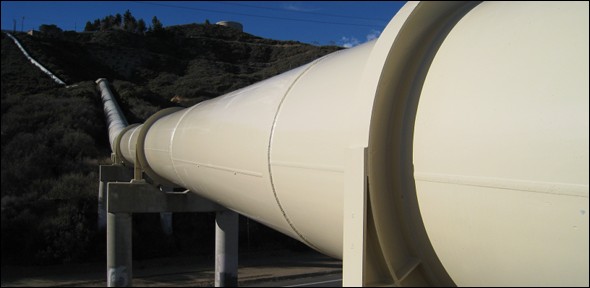What Does Trade Promotion Authority (TPA/Fast Track) Mean?
 As you may know, one of the issues being worked on in Congress this summer is trade. It’s a complex issue with a lot of acronyms that sound a lot alike, so let me explain. First, let’s talk about the acronyms and what they mean. Trade Promotion Authority (TPA) is an agreement worked out between Congress and the President that gives Congress an enhanced role in approving trade agreements. This is also known as “Fast Track”. Trade Adjustment Assistance (TAA) provides financial assistance to workers that lose jobs because of trade. Lastly, the Trans-Pacific Partnership (TPP) is a trade agreement currently being negotiated between the Obama Administration and several Pacific Rim nations. Last Friday, the House voted on TAA and TPA. TPP is still being negotiated and will not likely come before Congress for a vote for several weeks or months.
As you may know, one of the issues being worked on in Congress this summer is trade. It’s a complex issue with a lot of acronyms that sound a lot alike, so let me explain. First, let’s talk about the acronyms and what they mean. Trade Promotion Authority (TPA) is an agreement worked out between Congress and the President that gives Congress an enhanced role in approving trade agreements. This is also known as “Fast Track”. Trade Adjustment Assistance (TAA) provides financial assistance to workers that lose jobs because of trade. Lastly, the Trans-Pacific Partnership (TPP) is a trade agreement currently being negotiated between the Obama Administration and several Pacific Rim nations. Last Friday, the House voted on TAA and TPA. TPP is still being negotiated and will not likely come before Congress for a vote for several weeks or months.
Friday, the House voted on H.R. 1314—the Trade Act of 2015. This bill included two separate votes—one on TAA and one on TPA. I voted against TAA because I believe it is a very wasteful and inefficient program. The costs and benefits just don’t add up.
Immediately following the vote on TAA, the House voted on TPA—Trade Promotion Authority. TPA is not new. In 2002, a Republican-controlled Congress passed TPA to enable President George W. Bush to negotiate trade agreements. I have heard from many constituents who are concerned that TPA would equate to Congress turning over its Constitutional authority to the President. This is untrue. President Obama and the Administration have currently been negotiating TPP without TPA and can continue to do so as Article II of the Constitution grants President’s that authority—you can read more on this from the Heritage Foundation. If Presidents can and do have the authority on their own to negotiate trade agreements, why is TPA needed? Basically, it’s a tradeoff. Congress gets an enhanced role in the process of approving trade agreements and Presidents get a quicker process to have the agreement approved. Thus, the name “Fast Track”.
I believe free trade is good for America and provides new markets for American goods. I voted for this TPA bill because it holds President Obama accountable with a strict set of rules. TPA requires the Administration to pursue nearly 150 specific trade objectives, allows Congress to be part of the process by attending negotiations and receiving regular updates, and requires the President to publicize the trade agreement 60 days before it is signed. Most importantly, Congress gets the final say on a trade agreement with a vote to move forward or stop it. Many also have concerns that the text of TPA is being hidden from the public. This again is untrue. H.R. 1314 is public and always has been, you can view it here. The text of TPP, the actual trade deal being negotiating currently, is not public because it’s not final and is still being negotiated by the countries involved. Upon completion, TPP will be publicly available for 60 days before any approval vote.
According to a recent Wall Street Journal editorial, “Reviving so-called fast-track trade authority is a first step toward a return to the politics of growth over redistribution. The U.S. hasn’t negotiated a new trade pact from start to finish in nearly a decade, though in 2014 nearly half of U.S. goods exports went to our 20 free-trade partners. This has left U.S. companies at a disadvantage as competitors get an advantage in foreign markets.” House Ways and Means Committee Chairman Paul Ryan (R-WI) took to the House floor to say, “Between 2000 and 2010, the countries of East Asia negotiated 48 trade agreements. We were part of just two of them. As a result, our share of their imports fell by 42 percent. Meanwhile, China is negotiating trade agreements all over the world.” TPA holds President Obama accountable and takes the first step to allowing the U.S. to negotiate future trade pacts that would help Texas 19’s agriculture economy and our small business owners open new markets and expand opportunity—that is why the Republican-controlled House passed TPA and why I voted for it.
So what happens next? Since TAA and TPA were tied together, both had to pass or the bill as a whole would fail. Since TAA failed, TPA couldn’t move forward. The Obama era has left hardworking Americans with stagnant wages and one of the slowest recoveries in our nation’s history. Republicans are focused on pro-growth policies to get our economy back on track and that is why TPA could soon come back to the House floor.








